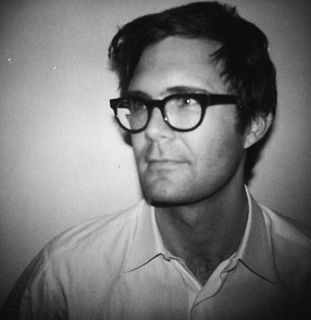A Quote by Oz Perkins
While writing, you are more interested in seeing what happens with you in the process, because all that writing is just you sorting through and exploring and wondering and figuring out your thoughts.
Related Quotes
Perhaps if there is anything remotely interesting about my writing style, it is this: more often than not I have no idea what the story is going to be about. Sometimes I have a fuzzy vision, or a glimpse of one scene, or a character. But mostly all I have is a random first sentence, and I follow it to see where it might go. For me, writing is the process of discovery, of gradually figuring out what happens in the story and how it ends, that makes writing an interesting process for me.
It is a bit more challenging for the simple fact that now the stories I am writing are relying more on my imagination than on facts, more on research than on memory; so it is basically a slower writing process, more reading, more exploring. On the other hand, this approach is a little bit relieving too, since many times while writing [How the Soldieer Repairs the Gramophone] I felt too close and equal to my character.
Along with a lot of other things, becoming a Bob Dylan fan made me a writer. I was never interested in figuring out what the songs meant. I was interested in figuring out my response to them, and other people's responses. I wanted to get closer to the music than I could by listening to it - I wanted to get inside of it, behind it, and writing about it through it, inside of it, behind it, was my way of doing that.
It's writing songs within the structure of telling a story, so it becomes a platform for diverse songwriting, for a writing process that's broader than just figuring out a song. You're also dealing with always pushing the story forward, with casting the voices, with the orchestration, with the arrangements.
I am at my happiest when I'm problem solving and a large part of writing is for me a lovely labor in problem solving. Every act of discovery in writing involves a process of figuring out why I'm not seeing what I need to see. Niggling feelings, discomforts, a sense that you've forgotten or overlooked something, a sudden curiosity about what if here? - these are priceless. They are the bases of problems and lead the way.
I know well enough that very few people who are supposedly interested in writing are interested in writing well. They are interested in publishing something, and if possible in making a "killing." They are interested in being a writer not in writing. . . If this is what you are interested in, I am not going to be much use to you.
The conventional wisdom is - people say this all the time - you should only write something when you're far enough away from it that you can have a perspective. But that's not true. That's a story that you're telling. The truth of it is here, right now. It's the only truth that we ever know. And I'm interested in that truth and the confusion being part of the experience and sorting it your way through and figuring it out.
When I used to teach writing, what I would tell my playwriting students is that while you're writing your plays, you're also writing the playwright. You're developing yourself as a persona, as a public persona. It's going to be partly exposed through the writing itself and partly created by all the paraphernalia that attaches itself to writing. But you aren't simply an invisible being or your own private being at work. You're kind of a public figure, as well.




































